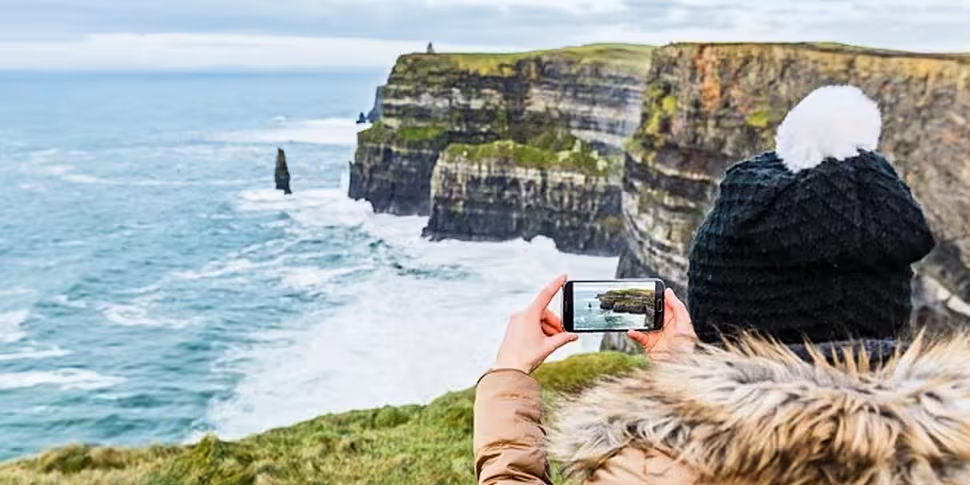Given its size, Ireland holds a disproportionately large hold on people’s imaginations across the globe. As a result tourists from all corners of the globe flock here every year in their millions — and the figure is increasing.
But now a move by the Central Statistic Office could damage Ireland’s reputation as “the land of a thousand welcomes” as it seeks to capture the mobile phone data of overseas tourists entering the country. On the face of it, the project sounds ludicrous, ill thought-out and potentially very damaging to Ireland’s economy.
One privacy advocate has labelled the move as “surveillance at its worst” and if it is implemented, it could stop tourists from visiting the country at all.
The problem is that the portrayal of what the CSO is planning to do has been somewhat misleading and lacking the details which explain just what it wants to do. So Newstalk decided to talk to them about exactly what their plan is.
Transparency
The CSO says it is currently researching a project which would see it collect some data from tourists who log onto Irish phone networks when they arrive, but the agency argues that they are not trying to collect any individual data, and that everything they do is available for all to see.
"We are absolutely committed to being transparent about this and we are not going to do something that in any way risks any data being released that can be related back to an individual," Andrew O’Sullivan, the CSO’s chief information officer told Newstalk.com.
O’Sullivan says he fully understands that people are concerned about the privacy of their data, but says previous media reports are “based on a high level outline of what was going on. I don't think you could ever classify what we are doing as surveillance, because it is not at an individual level, it is at a sample level.”
In 2016, some 9.5 million overseas visitors came to Ireland, up from 8.6 million the year before. Around 80% of all visitors to Ireland come into the country via Dublin airport. The CSO does carry out some paper surveys at the airport to determine where visitors are going and where they are from, but once they leave the airport, there is very little statistical data available on where they go next.
This makes it very difficult for developers and promoters of tourism products in other parts of the country to see if their products are working. And so, the CSO has been developing this proposal to help solve the problem.
The system would see the CSO working in collaboration with the mobile phone operators who would take a randomized sample of visitors who have logged onto their networks, gathering a phone identifier and the nationality of the visitor.
They would then send the CSO anonymized versions of this data, which would once again be anonymised by the CSO. To prevent any potential indirect identification of an individual, the CSO says that location data is aggregated to town or even county level, meaning information like GPS data is never collected.
This system would allow the CSO to quickly see where visitors travel to within Ireland, once they leave Dublin airport.
As well as working with the operators, the CSO has been in consultation with the Data Protection Commissioner’s office about its plans which has previously described the project as “disproportionate” and “extraordinary.”
O’Sullivan believes the CSO has now come up with a technical solution, statistically speaking at least, which he hopes will placate the DPC and it is now speaking to the mobile operators to see if it is technically feasible from their end.
Ireland would become the first country — that O’Sullivan is aware of — that tracks tourists’ mobile phone usage in this way. While there is a project in Holland which tracks migration via mobile phone use, there is probably a reason why no other country in the world has set up a tourist project like this.
Despite the CSO’s explanation of how it is going to protect privacy and anonymise data, the reality is that this project has been in development for many years simply because it is a tough sell. No one wants to have their movements tracked — especially not tourists.
The CSO says it has no firm timeline for when or if this project will launch.









